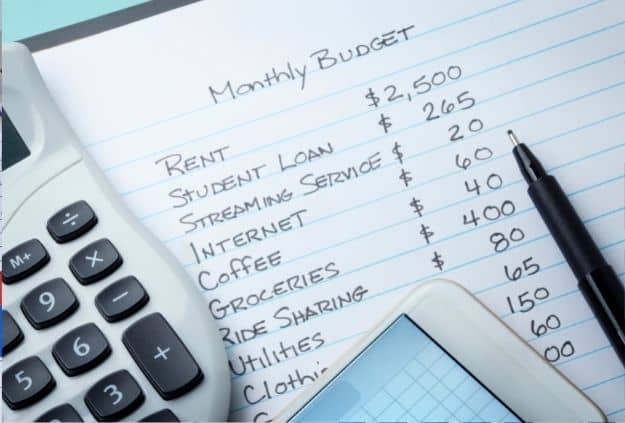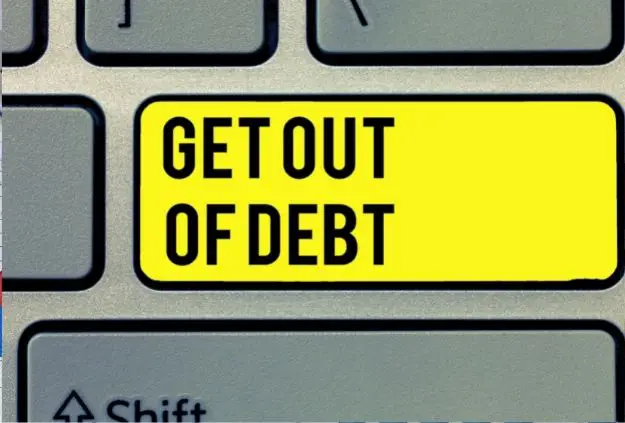Money Management 101 for Single Parents Going It Alone
Raising a child as a single parent takes courage, patience, and discipline. Apart from teaching them good morals, you’re expected to meet their financial needs.
This can be a significant challenge, regardless of your career. But with careful planning, you and your child will be ready for whatever life hurls at you.
In this post, I’ll walk you through some of the money management tips for single parents going it alone. Further, I’ll explain how you can effectively manage your expenses on a frugal budget.
Single Parent? Tips for Raising a Child Alone
Single parents experience some unique challenges, especially when they are the sole provider and financial administrator for their entire household.
However, by planning ahead, single parents can have a stable financial life and a happy future for themselves and their children. Here are a few money management tips for single parents going it alone.
1. Know What You Owe
As the family’s sole earner, it’s your responsibility to ensure that your entire household’s needs are met. As such, you need to be extremely careful when it comes to money management. Always have a plan and strive after it.
In practice, set up an imaginary office, grab a calculator, pencil, checkbook, and start evaluating all your bills. It would also help have a file that you can use to keep track of your financial data. Oh, and a shoebox for keeping all your paid bills.
Once everything is set:
- Analyze all your bills and pay anything that is due in a week
- If you cannot pay for the bills coming due, inform the company and request them to set up a payment plan with you.
- Make a printed copy of the chart “Paying Down My Debts” or DIY.
- Then, outline all your debts, including any student loans and credit card debts.
- Additionally, outline the total balance left to be paid on each debt and the rate at which you’re paying.
- And voila! You’re all done. Leave the fourth column blank and keep the chart in your “Financial Data” file.
2. Budget for Your Expenses
Now that you understand your financial status and you’ve made a plan for settling all your debts, it’s time you make other necessary adjustments so that you carry on with the plan. And this means crafting a budget.
I know this can be daunting, but I promise to make things much simpler for you. First, sign up for any free financial software program on the internet and let it do the budgeting for you. A good example is Mint.com—it creates a visual pie chart that shows all your monthly expenses and allows you to make necessary adjustments to get your spending under control.
However, if you prefer to go the traditional way, allocating a specific amount to each spending category can be a good idea. You can also opt for the online budget calculator that includes sections for child support and other details specific to you as a single parent.
Lastly, it’s important that you estimate how much you should be spending on each category besides knowing where your money goes every month. Below is how your net spendable earnings should be allotted after taxes:
- Housing: 30%
- Food: 12%
- Auto: 14%
- Insurance: 5%
- Debt: 5%
- Entertainment: 7%
- Clothing: 6%
- Savings: 5%
- Medical: 4%
- Miscellaneous: 7%
- Child Care: 5%
- Investments: 5%
3. Have Concrete Financial Goals
Having resolved a plan to pay off your debts and created a budget, it’s time you ascertain your future needs. And as a single parent, there are specific questions you need to ask yourself, such as:
- Do I need to apply for child support?
- Is it time I go back to school?
- Should I consider moving into a rental that would alleviate my overall monthly expenses?
- Are there options, such as getting another job or allocating expenses with another single parent, that you need to consider?
You know what’s best for you and your family, and the fact that you’ve come this far in managing your finances proves that you’re determined to make the necessary adjustments to provide for your family’s future. So go ahead and ask yourself these questions.
If you need to make some significant changes, now is the time because single parenting entails lots of creativity and the willingness to roll with the punches.
More importantly, you should learn to be resourceful and make the changes you need to improve your financial status. Also, try and avoid incurring more debt as you’re working towards turning your financial situation.
4. Grow Your Net Worth
Once you have your financial goals in place, the next step is to grow your net worth. How much you’re left with after paying out debts is your net worth. Again, online programs such as Mint.com, Quicken, and Microsoft Money will estimate your net worth automatically.
Another way to determine your net worth is by calculating all that you own, including all your investments, and deducting what you owe in outstanding debts. Once you know where you stand financially, you can open a savings account through your usual bank or start investing in a joint fund that pays interest.
Make a habit of saving even if you can only afford to put aside $15 or $25 monthly. In no time, you’ll have emergency savings plan to protect your family in the event of accidents and damages caused by natural calamities. Besides, these regular savings will help you boost your net worth over time.
5. Become a Minimalist
Sadly, all the efforts you’ve put in the previous steps will last for a short time if you don’t change your attitude toward finances. You need to become even more economical and learn to live within a frugal budget.
Stop visualizing that your financial situation will turn around—by winning the lottery, getting a promotion, or finally claiming unpaid child support. If those things come to pass, good for you. But living in anticipation will cause you to spend money you cannot afford.
Instead, make purchases using only cash and refrain from paying outrageous interest to credit cards for purchases you don’t need. However, if you’re in dire need of the product in the picture, below are the key factors to consider:
- Look into Freecycle before making a significant purchase—someone might be offering the very thing you ought to buy for free!
- Check out the product you’re looking to buy on auction sites, such as eBay, to get it at a discounted price.
- Learn to live within your means— stop proving your worth to people by having the latest car in town or appearance.
- Stop using shopping to satisfy your emotions.
- Lastly, you need to give yourself some flexibility to think about the big purchase you’re about to make. A good rule of thumb is to spend what you can afford to lose—don’t suffer through buyer’s guilt trying to justify yourself in purchases you cannot afford. Instead, have an allowance of a day or two to think about the purchase. More importantly, you should make these purchases with cash.
6. Schedule a Weekly Financial Update
Take your calendar and plan a weekly financial update meeting with yourself. This step is essential in managing personal finances, and you need to carry on with it every week. Here a few things you need to do during this meeting:
- Settle bills that are within due
- Analyze your bank statement and balance your checkbook
- Look into your savings account and the balances of your checking
- Update your debt list to add any recent payments
- Draft a shopping list, checking what’s currently selling at your local grocery store
- Take note of any upcoming expenses and plan for them.
7. Get Out of Debt—Really Fast
Finally, you need to get out of debt fast. Start by paying off those creditors that are charging the highest interest since they are the ones that are costing you the most money. That way, you can save the money you ought to have to have spent on interest charges.
However, you’re likely to get discouraged because it takes decades to pay off a high-interest rate debt. In such a case, you’ll want to start with the lowest balance debt. Having small debts paid off will encourage you to move forward.
Meanwhile, you should aim at paying more than the recommended minimum payment to enable you to settle your debts as fast as possible. As such, you’ll need to:
- Concentrate on a specific debt
- Increase your income on that particular debt as much as you can
- Once you have settled that debt, transfer all that you’re paying to the next debt. You’ll be amazed at how quickly you can get out of debt with this strategy!
Money Management 101 for Single Parents —Be On the Right Path
So much in single parenting is tied to emotions. As a result, we end up taking the wrong approach toward finances by creating outrageous budgets. No matter how stable your career, you need to know where your money is going and decide if those spending habits are working.
Fortunately, there are tons of apps and tools available to help you keep track of your spending patterns and craft a budget to meet your financial needs.
Mint.com is an excellent example of a financial software program that automatically connects with your bank account and classifies your living expenses. What’s more impressive is that it’s free of charge.








